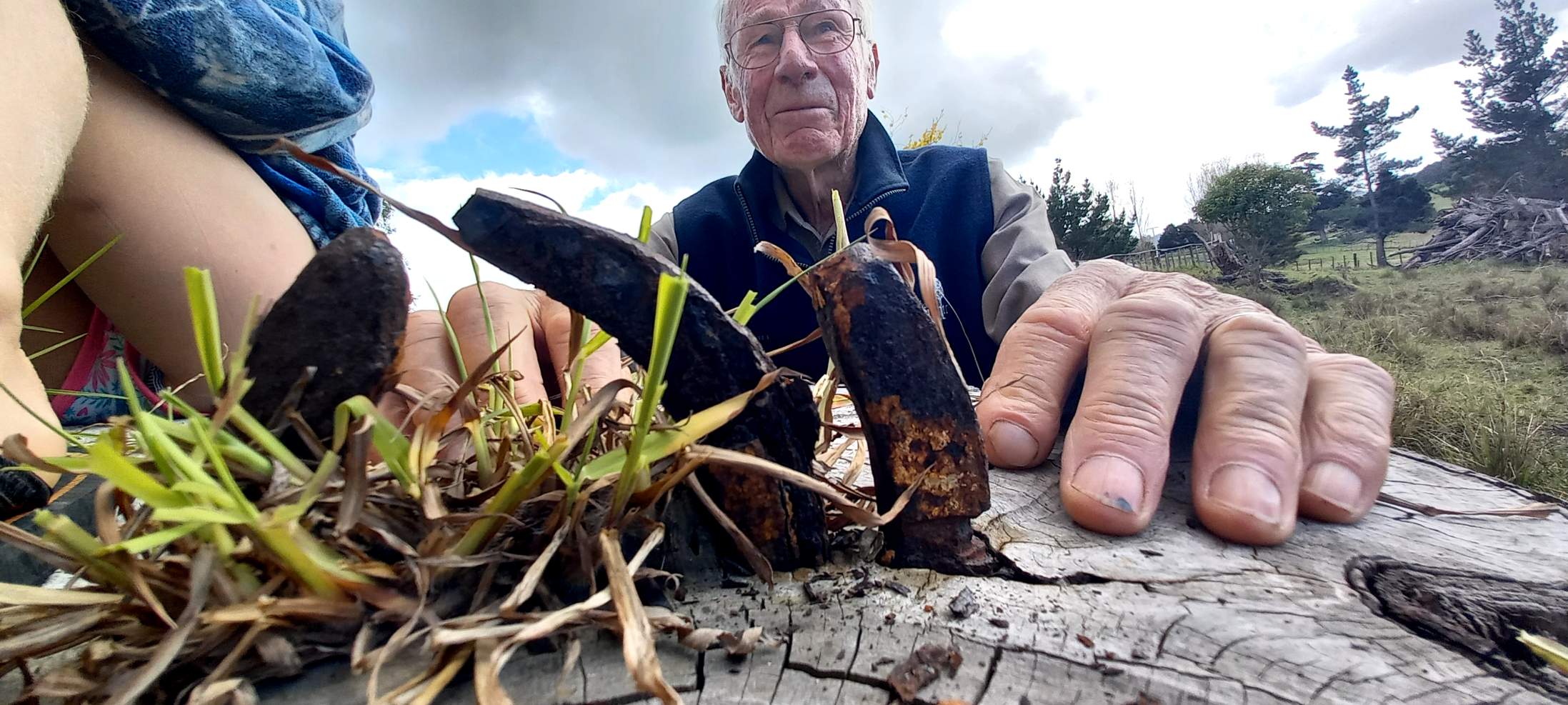It’s 20 years since long-time Kaipara resident Clive Smith barely avoided death following an attack by German wasps.
It was a typical farm day when he was doing some bulldozing in a recently harvested pine block and bladed across the top of a German wasp nest before unknowingly reversing back into it. Then he further infuriated the wasps by stepping in the entrance to their hole as he tried to retreat from the angry swarm and do a runner to safety.
As he ran towards his son Jason’s house, the wasps followed and continued to attack. Jason did what he could to kill them but in seemingly no time Clive had collapsed into unconsciousness. He subsequently stopped breathing numerous times and was turning blue.
The quick response of local Doctor Lynne Mitchell stabilised him after taking just eight minutes to drive to him.
By the time a Northland Rescue Helicopter landed at Clive’s Matakohe sheep and beef farm, he was quickly assessed, loaded into the air ambulance service and flown directly to Whangarei Hospital by which time he was stable – if a little uncomfortable from the 70-odd wasp stings.
But it was the quick actions of his son Jason (before the days of mobile phones being everywhere) who put the SOS call into the local medical drop-in centre at Paparoa that was the difference between life and death. From there, it was the expertise and swift response of Dr Mitchell that stabilised Clive and brought him around.
Clive even discovered a live wasp in his sock mid-flight, stayed overnight in hospital for observation and says the stings caused him grief for a few days.
“I could easily had died. They hit me fair and square because I was surrounded by a swarm and had to jump off and run but my foot landed and went down the hole of the entrance to their nest. Thankfully, Jason was close by but I still suffered from a massive overload of stings and antihistamines. What German wasps do is lay down a trail of stings, so I had railway tracks across my stomach.
“The Rescue Chopper services do an amazing job. When I hear those helicopters, I hope that nobody is hurt.”
Says Jason: “Because Dr Mitchell had arrived and worked so quickly on Dad, within three minutes of the Chopper medics being at Dad’s side they said he was good to go. And by the time he got to hospital he was completely stabilised. So, the Rescue Chopper made it quicker and better than it would have been if Dad had to go by road in an Ambulance – just because we live so remotely.”
For Jason, there were a handful of pertinent moments beyond him facing his fit, strong, farming father being attacked by the wasps and potentially dying.
Witnessing his father collapse and go unconscious, seeing him stop breathing, observing him go hot, then cold and then turn blue was fairly scary. Those moments of angst were intermingled with Jason having to run to the landline to keep in touch with 111 to request the Rescue Chopper and go back and check on Clive thankfully followed by Dr Mitchell’s speedy arrival and care.
“Had it not been for the actions of Dr Mitchell, the Chopper folk could have potentially faced a much graver situation. Then there was the Chopper landing 80 metres away in the paddock and the crew striding up the hill and taking over. It was like something out of the movies. It seemed like they had a gadget in every pocket of their uniform. It was amazing to watch. They were just so calm and assured and assuring … then they were gone.
“I still think, here is a remote service that save so many lives in rural New Zealand. Dad had so many toxins in his system, he was one of the lucky ones. We can’t do without our Northland Rescue Choppers.”





